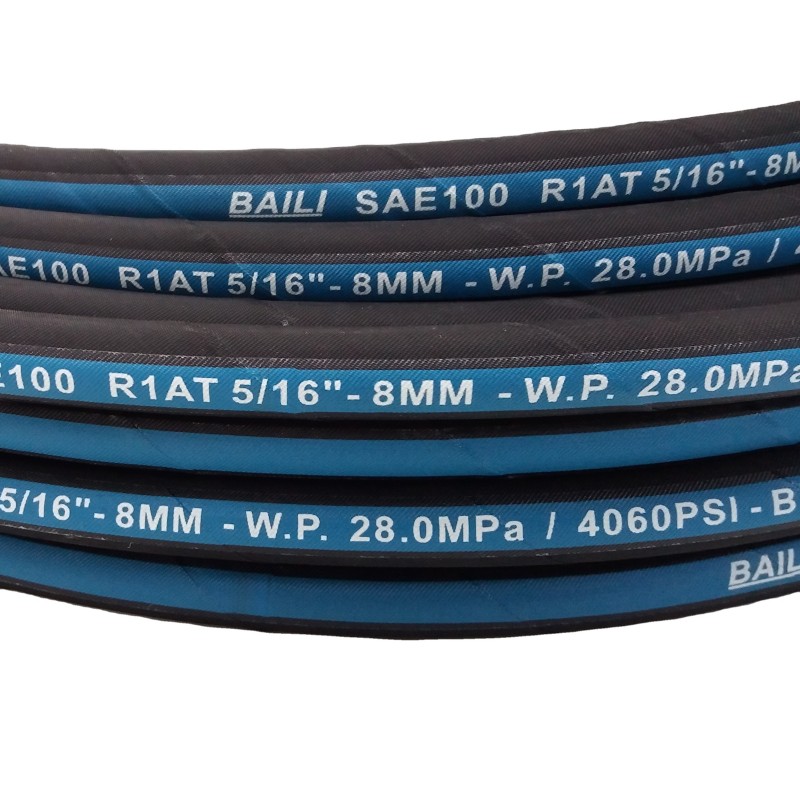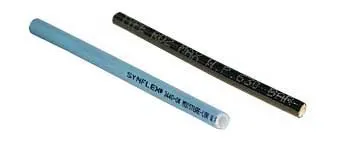6-р сар . 10, 2025 03:26 Back to list
Premium OEM Automotive Hose Supplier & Exporter Durable Solutions
- The Critical Role of Quality Automotive Hoses in Vehicle Performance
- Quantifying the Market: Data Impact and Growth Projections
- Engineering Superiority: What Sets Premium Automotive Hoses Apart
- Global OEM Automotive Hose Supplier Comparison: Capabilities and Specialties
- Customized Solutions for Specialized Automotive Applications
- Industry Application Case Studies: Performance Validation
- Selecting Your Strategic OEM Automotive Hose Exporter Partner

(automotive hose)
The Critical Role of Quality Automotive Hoses in Vehicle Performance
Modern vehicles rely on multiple hose systems for critical functions. Brake lines transfer hydraulic pressure at over 2,000 PSI, while fuel hoses withstand aggressive biofuel mixtures and temperatures reaching 120°C. Cooling system hoses manage engine heat across a 40°C to 130°C operating range, with rupture risks escalating rapidly beyond 140°C. Turbocharged engines compound these demands, exposing charge air hoses to 250°F temperatures and pressure spikes exceeding 35 PSI. Inferior hose construction leads to system failures averaging $380 per repair incident industry-wide.
Quantifying the Market: Data Impact and Growth Projections
The global automotive hose
market reached $27.8 billion in 2023 with a projected 5.3% CAGR through 2030, driven by increasing vehicle complexity. Electric vehicles now incorporate 15-20 specialized hoses per unit for battery thermal management, a 300% increase versus traditional cooling systems. Asia-Pacific dominates production with 62% market share, while North American OEMs imported $4.7 billion worth of automotive hoses last year. The aftermarket segment shows particular strength, growing at 7.1% annually as vehicles exceed 12-year service lifespans. Sustainability regulations are accelerating material innovation, with fluoroelastomer compounds gaining 18% market penetration for emissions reduction.
Engineering Superiority: What Sets Premium Automotive Hoses Apart
Advanced OEM automotive hoses incorporate proprietary reinforcement architectures. Top-tier suppliers utilize dual-layer helical steel wire reinforcement, increasing burst pressure resistance by 45% compared to standard single-ply designs. Material science breakthroughs include HNBR (Hydrogenated Nitrile Butadiene Rubber) compounds maintaining flexibility at -50°C while resisting ozone degradation. Leading manufacturers implement continuous vulcanization processes achieving 99.2% consistency in wall thickness versus 94.5% in conventional batch production. These technical advantages translate directly to performance: EPA-compliant EVAP hoses with fluoropolymer liners reduce hydrocarbon permeation to less than 0.05g/m²/day, exceeding regulatory requirements by 32x.
Global OEM Automotive Hose Supplier Comparison: Capabilities and Specialties
The OEM automotive hose manufacturing landscape features distinct regional specialties and technical competencies:
| Supplier | Core Specialization | Production Capacity | Certifications | Material Innovations |
|---|---|---|---|---|
| ContiTech AG | Turbocharger Systems | 85 million units/year | IATF 16949, ISO 14001 | Multi-layer FKM liners |
| Sumitomo Riko | EV Battery Cooling | 42 million units/year | ISO 9001, ISO 45001 | Electrically conductive EPDM |
| Hutchinson SA | Air Suspension | 28 million units/year | ISO/TS 16949, AS9100 | Polyamide-PU composites |
| Gates Corporation | High-Pressure Hydraulics | 63 million units/year | IATF 16949, ISO 14001 | PTFE-steel hybrids |
Competitive differentiation extends beyond specifications. Tier-1 suppliers maintain comprehensive oem automotive hose pricelist structures incorporating volume discounts exceeding 22% for contracts over 100,000 units, while offering consignment inventory programs that reduce customer warehousing costs by 35% on average.
Customized Solutions for Specialized Automotive Applications
Innovative manufacturers develop application-specific solutions through collaborative engineering. For electric delivery vehicles, custom thermal management hoses with integrated temperature sensors reduce battery pack temperature variation to ±1.5°C, extending cycle life by 19%. Heavy-duty mining equipment utilizes abrasion-resistant hoses featuring kevlar overlays, reducing replacement frequency from quarterly to biannual intervals. Recent breakthroughs include quick-connect dry-break systems that slash EV assembly time per hose connection from 98 seconds to 14 seconds. Customization typically adds 15-25% to baseline oem automotive hose pricelist options but delivers 3-5x longer service life in extreme applications.
Industry Application Case Studies: Performance Validation
Automotive hose engineering solves critical industry challenges with measurable outcomes:
Commercial Trucking Solution: A European OEM reduced hydraulic system failures by 76% after switching to reinforced six-layer hose assemblies capable of absorbing 2.8 million pressure cycles versus industry standard 900,000 cycles.
Electric Bus Implementation: Integrated coolant circuits with dielectric hoses eliminated thermal runaway events across a 650-vehicle fleet, maintaining battery temperatures below 40°C during rapid charging cycles.
Agricultural Equipment: Bio-diesel compatible hoses with specialized inner liners decreased permeation-related hardening by 91% in combine harvesters operating with B20 fuel blends.
Selecting Your Strategic OEM Automotive Hose Exporter Partner
Partner evaluation requires comprehensive assessment across six critical parameters: manufacturing certifications (IATF 16949 compliance is non-negotiable), material traceability systems, testing laboratory capabilities, supply chain resilience metrics, global logistics infrastructure, and technical partnership approach. Leading oem automotive hose exporter partners maintain vertically integrated facilities handling everything from polymer compounding to final assembly, reducing supply chain vulnerabilities. Award-winning exporters typically feature AS/EN 9100 aerospace certification, 98.5%+ on-time delivery rates, and regional stocking warehouses maintaining 120 days of buffer inventory. Before requesting formal quotes, demand documentation of fatigue testing validating at least 2 million pressure cycles and material resistance testing against OEM-specific fluid formulations. This due diligence ensures your automotive hose systems deliver decade-long reliability even under extreme operating conditions.

(automotive hose)
FAQS on automotive hose
Q: What defines a reliable OEM automotive hose supplier?
A: A reliable OEM automotive hose supplier holds IATF 16949 certification and specializes in precision manufacturing for vehicle systems. They provide consistent quality, rigorous testing documentation, and timely logistics solutions. Long-term partnerships with major automakers further validate their credibility.
Q: Why choose an OEM automotive hose exporter for global sourcing?
A: Experienced OEM automotive hose exporters streamline international compliance like REACH/ROHS standards and customs clearance. They optimize shipping costs through consolidated logistics and maintain buffer inventory to prevent delays, ensuring reliable supply chains for manufacturers worldwide.
Q: What factors influence an OEM automotive hose pricelist?
A: Pricing depends on rubber compound specifications (e.g., EPDM vs. fluorosilicone), order volume tiers, and certification requirements. Additional variables include pressure rating adjustments, custom fitting configurations, and negotiated annual supply contracts with MOQ commitments.
Q: How do OEM automotive hoses enhance vehicle performance?
A: Precision-engineered hoses ensure leak-free fluid transfer for critical systems like braking, fuel injection, and turbo cooling. They withstand extreme temperatures (-40°C to 150°C+) and pressures up to 250 bar, directly impacting drivetrain efficiency and emissions compliance.
Q: What certifications should an OEM automotive hose supplier provide?
A: Mandatory certifications include IATF 16949 for quality management and material-specific approvals like SAE J20 Class D/E standards. Reputable suppliers also furnish PPAP documentation, material traceability reports, and batch-specific test certificates for every shipment.
-
High Quality Rubber Air Hose 3/8 - Durable & Flexible Solutions
NewsJul.26,2025
-
High-Quality 1/2 ID Rubber Hose for Industrial & Automotive Use
NewsJul.25,2025
-
Durable 1/2 ID Rubber Hose – Flexible, Heat Resistant & Multi-Purpose
NewsJul.24,2025
-
Premium Rubber Air Hose 3 8 – Durable, Flexible, Heat Resistant
NewsJul.23,2025
-
Durable 1/2 ID Rubber Hose – Flexible, Heat Resistant, Multiple Sizes
NewsJul.22,2025
-
Durable 3/8 Rubber Air Hose - High Pressure & Flexible
NewsJul.21,2025
